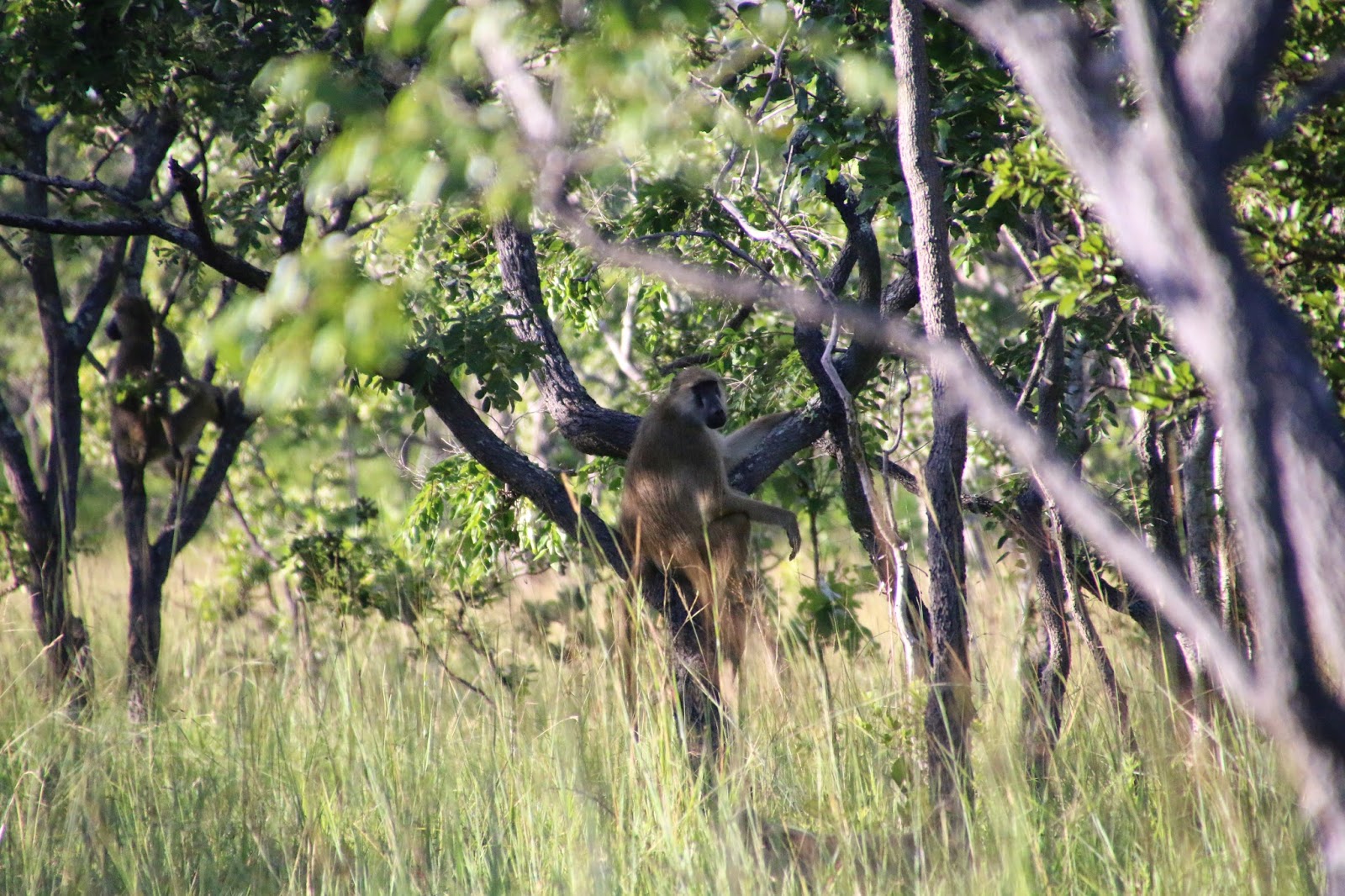Well, I’m back now in Lilongwe for a couple of weeks (was
supposed to be a couple of days) because my car needs fixing…again. But at
least it gives me a good chance to give a little Kasungu / Release update.
A few weeks ago my troop encountered a neighboring wild
troop of baboons. Actually they came across each other three times in one day.
It was all very exciting and stressful. But at the end of the third
encountered, we saw a male from the other troop run over to ours, very much in
the style of Red Rover, Red Rover. This new guy seemed to follow my baboons for
the rest of the day without incident, so we decided just to watch and see what
would happen. It is usual for sub-adult and adult males to leave their natal
troops and immigrate into new ones. This helps, of course, with preserving the
species’ genetic diversity. However, unless you do long-term field work, it’s
not a usual occurrence to see. It’s one of the few typical baboon things that I
hadn’t yet been privy to witness! So needless to say, I was very excited by the
whole thing.
Over the next few days, we all watched tentatively to see
how this new male would mesh with the group. And thankfully, everything seemed
to go smoothly. There were a few bouts of chasing between him and my own
resident sub-adult male and adult male, but no real aggression or fighting or
injuries. Watching the whole immigration process was very interesting. The new
guy spent a few days towards the outskirts of the troop, quietly following
along. After a few days, my own troop began following him, taking his lead
because he clearly knows the area and the bush better than they do. My adult
male, John, didn’t seem to care at all,
and seemed happy to hand the reigns over to someone more capable. The rest of
the troop also didn’t seem to mind him joining. Bruiser, my sub-adult, who had
been the leader thus far, seemed a bit peeved, but still followed the new guy
along with the rest of the troop. Hopefully Bruiser continues to stick around
and doesn’t get itchy fit like sub-adult males tend to and go off to find
another troop, something which is definitely likely. But I like Bruiser and he
is a key member of my small troop so I was happy to see that he and the new guy
were getting along.
 | |
| Roman |
Once it was clear that this new male was going to stay with
us, I decided to name him Roman. I always try and incorporate my rather odd undergrad
Classics major into my primatological life, and the best way is through awesome
names. In the past I’ve named some baboons Aeneas, Agamemnon, Athena, etc. So
this one is called Roman. It’s also a slight pun, because he’s a roamin’ male,
get it? Roman is a sub-adult, soon to be an adult. He’s slightly larger than
Bruiser and slightly smaller than John, but he is big and muscular and healthy.
He’s got a skinny dark face with kind eyes and long ginger-y hair. He’s very
orange compared to my grey-er baboons.
 |
| Roman (back) is much more orange than Bruiser (front) |
I’m excited to see how Roman continues to integrate into the
troop and in turn how the troop responds to him. I’m also excited that this new
bush-wise male will increase the bush-savviness of my own release troop!
And here are some more recent photos for you to enjoy!










